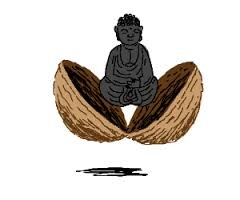Welcome home! Please contact lincoln@icrontic.com if you have any difficulty logging in or using the site. New registrations must be manually approved which may take several days. Can't log in? Try clearing your browser's cookies.
lojong and tonglen
 ScottPen
Maryland Veteran
ScottPen
Maryland Veteran
Hi everybody!
A practitioner recently recommended to me that I look into the practices of lojong and tonglen as part of my exploration into compassion.
Has anyone here had experience with these? Can you describe it?
0

Comments
In a nutshell

Training the mind in receiving (taking in) the unwholesome and giving out the wholesome in return
Lojong roughly translated from Tibetan as "mind training", and the most common lojong is probably the "7 points of mind training" which is made up of 59 "slogans" originally writing by a Kadampa master named Chekawa. The old Kadampa master's were most well known for their cultivation of practices related to mind training.
Tonglen is presented as part of these slogans. Essentially, in stages it is a meditation which roughly translates as "taking and sending" in which the meditator cultivates compassion by learning to "taking" others' negativities with the in breath while "sending" goodness and happiness with the out breath. There are some things in between as well and I think that the following book recommendations provide some basic instructions. In my opinion, trying to learn these things from an actual teacher is the best, as in my experience nothing can substitute from oral instructions.
For a classic text on the subject of looking, I suggest "The Great Path of Awakening" which is a text composed by the great Tibetan Master Jamgon Kongtrul Lodro Thaye.
There are several good books on the subject of lojong written by teachers of today, including those by Ringu Tulku, and Kyabgon Treleg Rinpoche, to name a few.
When taken to heart and put into practice on a daily basis in our everyday life, practicing these slogans and lojong in general can really help to transform our mind from it's self centered tendencies which is really the main point. And just a point to keep in mind regarding the practice of tonglen, it is meant to cultivate a change in our minds behaviour. A lot of people are concerned with things regarding taking on the negativities of others but of course we must realize that karma is non-transferable and all of that.
As an aside there are numerous other well known likings including the "8 Verses for training the mind", which HH Dalai Lama has taught on numerous iccasions. Lojong Shenpa Shidrel is a very short and pithy 4 line lojong that has numerous commentaries and encompasses the entire Mahayana path.
Great to see your interest in the wonderful practice tradition of lojong. Hope some of this brief explanation and reference helps!
Ugyen Yeshe
Practice lojong and here is what happens to your longjohns
good post from @Ugyen_Yeshe (welcome to NewBuddhist), not sure what happens to your tonglen ... ?
http://www.ericdowsett.com/tonglen/
Here is an article: https://www.lionsroar.com/how-to-practice-tonglen/?utm_content=buffer55ab3&utm_medium=social&utm_source=facebook.com&utm_campaign=buffer
@Shoshin, @Ugyen_Yeshe, @lobster, & @Jeffrey, thank you all for your help. I'm trying to cobble together my best practice and this does seem beneficial.
@lobster, that pic was an amazing find! +1 for you on that
All I can offer from my own experience is don't do it half heartedly and make sure you understand what you're doing. It makes a world of difference
???
... found what happens if practicing tonguelen ...
http://quietmountain.org/links/teachings/tonglen.htm
meanwhile in yoga tongueland
Buddhist since 2000 with a local Tibetan Lama as a teacher.
And a degree in cognitive psychology.
Yes, VERY useful.
Some of the Tibetan practices function very much like cognitive psychology .. deliberately creating and strengthening the patterns in your brain. This is how inner change happens.
And the Practices use all 3 learning styles: visual (the actual items you see, plus the visualization exercises), auditory (the chanting, the bell, etc), and kinetic (the prostrations and mudras). The more you engage all the learning styles, the more learning takes place.
And how is "learning" defined in psychology? As an observable measurable change in behavior.
But a teacher makes a huge difference in how well we use these practices. Their example is far more useful than words.
And the Tibetans (the lamas, the Tibetan doctors, and Tibetans in general) warn that doing Tibetan Buddhism without a teacher will "drive you crazy" (their words, not mine. But I CAN see how the practices can create delusional thinking if not guided properly). So they tell us that one should not do the Vajrayana/Tibetan practices unless you have the guidance of a live teacher.
Vajrayana is not possible without a teacher. No empowerment, no Vajryayana. The rest is all trivial.
That said, the practices which are being asked about here are not Vajrayana practices and are rooted in Sutrayana. One can be learn Sutrayana practices without a teacher, but like I said nothing beats oral instructions.
Good points made there @FoibleFull - I've come to realise since being on this site that so far I've been merely dipping my little pink toes into a very deep lake! The need for a teacher especially in certain disciplines is obviously vital.
The Dalai Lama Lojong 1 & 2
Tonglen Guided Meditation by Tulku Tsori Rinpoche
I'll take Nothing
[ Oh I iz wikid ]
]
You become a cunning linguist?......runs away
That was my starting point.
Tibetan Buddhism is no different to any spiritual path in being dangerous. Only the ineffective will keep you on the near shore.
Vajrayana teachers can be web based, for example @Jeffrey has one ...
meanwhile ...
http://spiritgrooves.net/pdf/e-books/Meditation_ebook.pdf
Revisiting the beginning of this thread, it occurred to me that an ongoing discussion on the topic of lojong (mind training) may be both useful and helpful to some here, as well as myself also.
My idea was to discuss the "7 points of mind training" one at a time (going through all the "slogans" which make up the text). Maybe a slogan a day, and that way it gives us a chance to discuss each point and will allow an ongoing study that can be built upon. I know that for myself, when we constantly engage in study and reflection then it is much easier to make it a part of our everyday experience.
I would be happy to provide the slogans as we go along.
Is there any interest in this sort of thing?
Go for it. Every curve is a learning curve....
I like that one...
I’m certainly interested in learning more about this. By all means bring on the slogans.
"Go to work on an egg."
"Naughty but Nice!"
"Nice one Cyril!"
"You only get an 'ooh!' with Typhoo!"
"Because Life's Complicated Enough"
"Finger-Lickin' good!"
"Fly the Flag"
I guarantee you, @Ugyen_Yeshe 's will be better, though.... But will they be as catchy...?
(My Dad always used to say "If you learnt your schoolwork the way you learn the things on television, you'd be a better pupil!"
which actually stopped that little mini-sermon in its tracks one day, when I replied,
"...And if they taught lessons in as entertaining and catchy a way as they do on television, it would be a better school!")
Go to work on a Precept
Nice and Naughty
Nice One Buddha
You only get an HUM with mantra
It's simple enough
Mudra posturing good
Fly the Lotus
We haz plan!
You missed 'watch out there's a Humphrey about' @federica, my all time favorite piece of advertising mayhem ?
Since I started this thread, I certainly would like to learn more about it. I'm not part of an in-person sangha and I didn't really take to the vajrayana service that I attended. So yes, I'd love to learn more from you lovely folks.
Apologies. It won't happen again.
Sorry for the delay everyone. I have decided to dedicate the slogans and their discussions to it's own thread, called "Lojong and the Seven Points of Mind Training". Thank you for your patience.
For ease of location....
The lovely are taking a break ...
From your previous posts I get the impression your approach is pragmatic. If it works do it. As an ancient psychology, vajrayana bypasses rationality because part of our nature is hardwired irrationality.
Once you understand this, irrational magickal practices become soothing, calming, clarifying. They are working solutions. It is bit like music. Irrational attraction to noise.
Breathe in the good sounds ...
